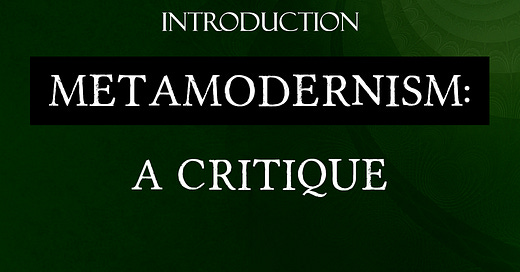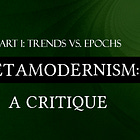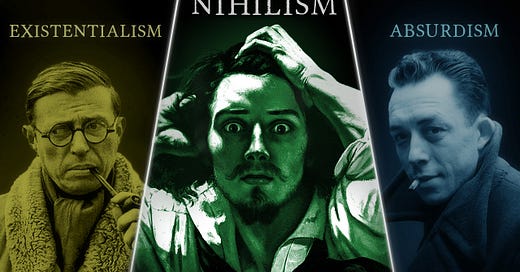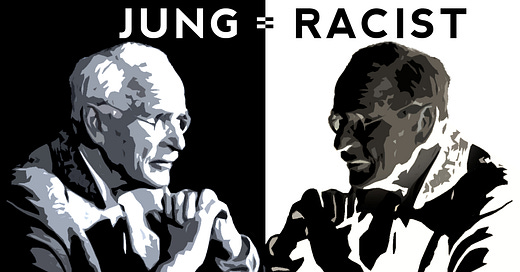
This is the introduction to a series of critical ponderings on Metamodernism. After the final release, there will be a podcast interview with Brendan Graham Dempsey on his Metamodern Spirituality podcast to chat through some of these criticisms. Previous instalments: Intro, Part 1, Part 2, Part 3, Part 4, Part 5, Part 6, Metamodern Meaning Podcast.
Over the past year or so I have found my Metamodern convictions lapsing.
This, after four years on a wonderful Metamodern adventure. A serendipitous encounter with Ken Wilber’s A Theory of Everything was life-changing. I had finished a forty day trek hiking and camping the southwest peninsulas of Ireland starting from my front door in Limerick, marching to Tralee and from there skirting the Irish coastline until I came to the southernmost point of Ireland at which point I turned my feet northwards and hiked northwards through the belly of Cork. After several weeks of reconnecting with glorious (and often inclement) Ireland, writing reams of poetry in my solitude, my hike ended and left me with my soles and soul hardened and cleansed respectfully.
There’s an old Zen story about a professor who comes to learn from a Zen master. He asks the master to teach him about enlightenment. The master smiles suggesting they discuss it over a cup of tea. The professor assents. They sit down and the Zen master begins to pour out the professor’s cup. As the tea filled the cup, the master continued to pour. As the cup overflowed the professor exclaimed to stop. The master, smiling, stops pouring and says to his scholarly visitor:
“You are like this cup, so full of your own opinions and speculations, that nothing more can be added. Come back to me when the cup is empty.”
Looking back I see those days of solitary walking as a great emptying.
I had encountered Wilber years earlier in the ramshackle house of an eccentric somatics teacher in the middle of nowhere, Australia. I was at my most hostile to New Age thought at that point and was on more of a cathartic than ecstatic journey and so it was into Jung’s arms that I fell at that period. And so it went through most of my 20s.
The day after finishing my hike, I was in a second-hand bookshop in Macroom, County Cork and I came upon an old copy of Wilber’s A Theory of Everything and remembered the love my Australian host had expressed for Wilber. I bought the book and was immediately taken with it — devouring it as fast as my eyes and belly would allow. It left my vision of the world transformed.
A few months later, I started the YouTube channel and many of the early episodes touch on themes of Wilber and his “Integral” school. In fact, you can see this Integral DNA right up to the episodes this year if you know what you’re looking for.
Not long after reading Wilber, I picked up Hanzi Freinacht’s book The Listening Society. Or, I should say, I picked up Hanzi Freinacht’s book again since I’d attempted reading it a year or two earlier on a friend’s recommendation. That first encounter had left me cold — something in the style repulsive to me (more on that in Part 5). This time, I pushed past this initial impression and found a trove of wonders in Freinacht. It was like Wilber but updated to the age of smartphones and culture wars. From there I encountered other post-Wilber thinkers in the Sensemakers (Rebel Wisdom, Daniel Schmachtenberger and Jamie Wheal all very much Integral alumni). I swam in these Integral/Sensemaking/Metamodern waters in dissolved fascination.
But over the past year or so I have found my Metamodern convictions lapsing. There’s been an uneasiness brewing in me that I’ve been unable to articulate. Somewhere in the past few months I finally confessed the truth to myself: the spell had worn off.
2024 has been a year of stripping away. I have found myself waist-high in Nihilism. Not drowning as I was as a teenager but enough to be purified by it. It’s been a challenging year but I’ve shed a lot of baggage that needed to be shed. Part of that has been Wilber and his cousins.
Despite my felt sense of disillusion, it has taken me a long time to triangulate the source of my uneasiness with Metamodernism. But after much reflection, I feel I have differentiated the baby and the bathwater. I doubt many will agree with my evaluation. I suspect there’s a temperamental/axiomatic component to this (Nietzsche: “Gradually it has become clear to me what every great philosophy so far has been: namely, the personal confession of its author”). What convinces me won’t convince others. What leaves me cold will fill others with passion. So it goes.
This post is the beginning of a multi-week critique of Metamodernism. I’d originally envisioned these critiques of Metamodernism as a letter exchange with Brendan Graham Dempsey of Metamodern Spirituality. We had a great catchup in which I shared many of my misgivings and it was lovely to chat with him again. Alas he has many other responsibilities to attend to and so he didn’t have the time to indulge me in my prolonged ruminations in this letter format. However, we have decided that after I’ve outlined my critiques, we’ll sit down for a long-form podcast discussion after which I’m looking forward to.
I considered doing this as one long post but my critiques are less linear than a number of skirmishes (or as Wittgenstein would have: “a number of sketches of landscapes [in which the] same or almost the same points were always being approached afresh from different directions, and new sketches made”) and so it feels more appropriate to break them up into a number of instalments. If you don’t know what Metamodernism is, the following posts will likely be of little interest. If you’re curious about Metamodernism you can read my earlier article about it here (or watch it in video form here). Or, if you’d like a fuller perspective, I’d highly recommend Brendan’s book Metamodernism: A Cultural Logic of Cultural Logics as a great overview of the field in 2024.
I have no doubt that there are many gaps in my account but this is mostly for myself — it is my attempt to articulate where I stand with Metamodernism and thus to understand my own current belief system. I hope some of you derive some value from my indulgence.
Thanks for reading,
James
Next:

















Looking forward to this as a fan of both your work and Brendan's work.
(I was similarly repulsed by Hanzi's style, but reading this makes me want to give Listening Society one more try!)